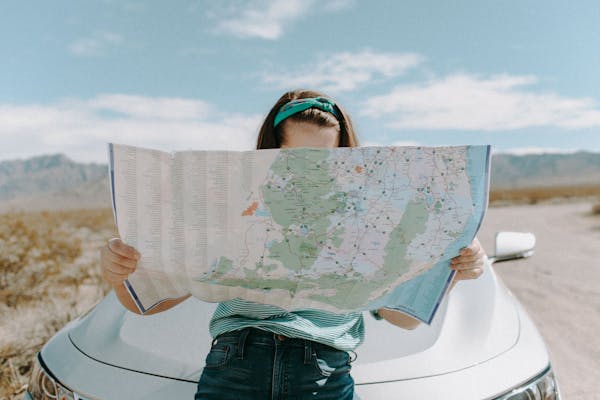Introduction: Why Travel is Essential for a Fulfilling Life
Travel is more than just seeing the world—it changes the way we see the world, broadens our horizons and opens our minds. Travelling is essential today Despite the fact that it serves as a source of pleasure and relaxation, traveling is an essential pillar of both education and personal development in today’s contemporary world. This all-encompassing manual covers every aspect of travel, including: Planning and packing,Identity and health,Travel basics and tips,Working, studying, and volunteering abroad,Global security and terrorism. The Travel Guide for any travel style – whether it’s your first time exploring, or you’re a seasoned globetrotter, let this travel guide maximize your journey with joy and purpose.
1. What is Travel and Why It Matters
Definition of Travel Travel is defined as the movement of people from one location to another, usually traveling for pleasure, education, work or for the purpose of exploration. It makes life richer through being introduced to new cultures, landscapes,and views.
Key Benefits of Travel:
- Enhances mental health
- Expands cultural awareness
- Encourages adaptability and creativity
- Builds lifelong memories and friendships
Table 1: Psychological and Social Benefits of Travel
| Benefit | Description |
| Stress Reduction | Provides a break from routine and mental reset |
| Enhanced Creativity | Stimulates new ideas through diverse experiences |
| Stronger Relationships | Shared experiences strengthen bonds |
| Personal Growth | Builds independence, confidence, and resilience |
2. Types of Travel Experiences
- Understand what type of traveler you are, and you can structure travel plans that are more directly tailored to your tastes and requirements. Adventure Travel: Trekking, climbing, scuba diving, etc.
- Cultural Travel: Museums, festivals, historical sites
- Eco-Tourism: Nature-focused with sustainable practices
- Luxury Travel: High-end accommodations and services
- Backpacking: Budget travel with minimal gear
- Voluntourism: Combining travel with volunteer work
3. Planning a Trip: Step-by-Step Guide
Steps to Plan a Successful Trip:
- Set Your Travel Goals – Define what you want from the trip.
- Choose Your Destination – Consider weather, culture, cost.
- Research and Itinerary – List must-see spots, local activities.
- Book Flights and Accommodation – Use price comparison tools.
- Prepare Documents – Passport, visa, travel insurance.
- Vaccinations and Safety Tips – Visit travel clinics in advance.
- Set a Budget – Account for travel, lodging, food, and extras.
4. Budget Travel Tips: Saving While Exploring
Travel needn’t cost you an arm and a leg. Good planning makes that one wonderfully rich experience on a budget.
Table 2: Cost-Saving Travel Strategies
| Strategy | Impact |
| Off-Season Travel | Lower prices and fewer crowds |
| Public Transportation | Saves money compared to taxis or rentals |
| Local Dining | Affordable and authentic food experiences |
| Travel Rewards Programs | Earn points for flights and hotels |
5. Choosing Your Ideal Destination
Choose a destination that reflects your interests, budget, and timing. Lean on travel blogs, reviews and social media for inspiration.
Factors to Consider:
- Language and cultural differences
- Political stability
- Weather and climate
- Accessibility and visa requirements
6. Packing Essentials and Travel Gear
Packing smart makes travel more comfortable and efficient.
Must-Have Items:
- Travel documents
- Clothing suitable for the destination
- Health and hygiene products
- Travel adapters and chargers
- First aid kit
Pro Tip:
Use packing cubes and a checklist to stay organized.
7. Safety and Health While Traveling
When you make safety your priority, it gives you peace of mind and makes for a better trip.
Safety Tips:
- Register with your embassy
- Keep copies of important documents
- Stay informed on local customs and laws
- Use reputable transportation and accommodations
Health Tips:
- Drink bottled or filtered water
- Be mindful of food hygiene
- Get travel insurance that covers health emergencies
8. Cultural Etiquette and Local Integration
Being respectful and aware of local customs fosters positive experiences.
Do’s and Don’ts by Region:
- Asia: Remove shoes indoors; avoid touching heads
- Middle East: Dress conservatively; avoid public displays of affection
- Europe: Learn basic phrases in the local language
9. Sustainable and Responsible Travel
Travel can be eco-friendly and ethical when approached mindfully.
Sustainable Practices:
- Minimize plastic use
- Support local businesses
- Choose eco-certified accommodations
- Avoid exploiting wildlife or indigenous communities
Table 3: Eco-Friendly Travel Tips
| Practice | Environmental Impact |
| Reusable Water Bottles | Reduces plastic waste |
| Public Transport Usage | Lowers carbon emissions |
| Ethical Tour Operators | Promotes sustainable local economies |
| Digital Tickets | Saves paper and printing resources |
10. Digital Tools for Modern Travel
Technology makes travel planning and navigation easier.
Essential Travel Apps:
- Google Maps – Navigation and local guides
- TripIt – Itinerary management
- XE Currency – Currency conversion
- Duolingo – Language learning
- Airbnb, Booking.com – Accommodation options
11. Solo Travel: Empowering and Safe Adventures
Traveling alone builds independence and self-awareness.
Solo Travel Tips:
- Choose safe destinations
- Inform someone of your plans
- Join local tours for companionship
- Trust your instincts and stay alert
12. Family and Group Travel Dynamics
Traveling with others requires extra planning and communication.
Tips for Smooth Group Travel:
- Designate roles (navigator, scheduler, etc.)
- Use shared calendars
- Be flexible with schedules
- Schedule alone time to prevent burnout
13. Travel Photography and Storytelling
Capture memories and inspire others through travel content.
Photography Tips:
- Use natural lighting
- Capture candid moments
- Respect privacy and ask for consent
Storytelling Ideas:
- Daily travel journals
- Social media vlogs or reels
- Photo essays
14. Post-Travel Reflection and Sharing
Reflecting on your journey helps solidify memories and lessons learned.
Reflection Techniques:
- Journaling key moments
- Creating photo albums
- Sharing experiences with friends or blogs
- Planning future trips based on what you enjoyed most
15. Conclusion: Transform Your Life Through Travel
Travel adds to the human experience, it creates understanding, compassion, and adventure. With deliberate planning, respectful travel, and thoughtful reflection, you can get more out of every journey. Whether it’s a weekend trip or yearlong journey, allow travel become a source of joy, growth and global connection.










